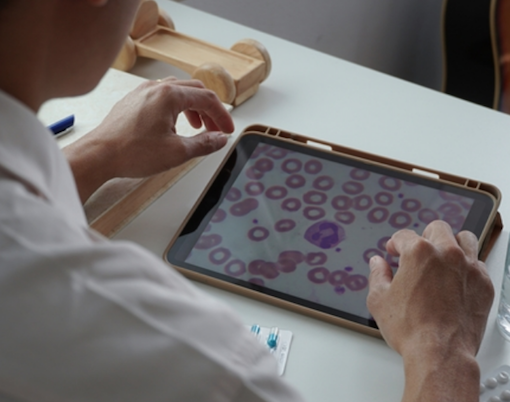
Scientists at Duke-NUS Medical School, A*STAR’s Genome Institute of Singapore (GIS), Singapore General Hospital (SGH) and their colleagues in Singapore have used artificial intelligence (AI) to accelerate the discovery of critical biomarkers that can predict, at diagnosis, patients with chronic myeloid leukaemia (CML) who will not respond to conventional treatment. With this early prognosis, such patients could receive a life-saving bone marrow transplant during the early stages of the disease.
CML is a type of blood cancer that develops when a genetic mutation results in the permanent switching-on of an enzyme called a tyrosine kinase. The conventional treatment for CML is a tyrosine kinase inhibitor (TKI), which switches off the tyrosine kinase that was turned on as a result of the genetic mutation. However, not everyone responds similarly to these drugs.
Researchers have now generated a cell ‘atlas’ from bone marrow samples taken from six healthy people and 23 patients with CML prior to treatment. The atlas allowed them to see the different types of cells and their proportions in each sample. The researchers conducted RNA sequencing at the single-cell level and employed machine learning algorithms to determine which genes and molecular processes were turned on and off in each cell.
The work revealed eight statistically significant features in pre-treatment bone marrow cells that were either associated with sensitivity to tyrosine kinase inhibitor treatment or extreme resistance to it.
The research could lead to drug targets for preventing or delaying treatment resistance and blast crisis in patients with chronic myeloid leukaemia. The team next plans to use the findings to develop a predictive test of treatment resistance that hospitals can routinely use with their patients.




